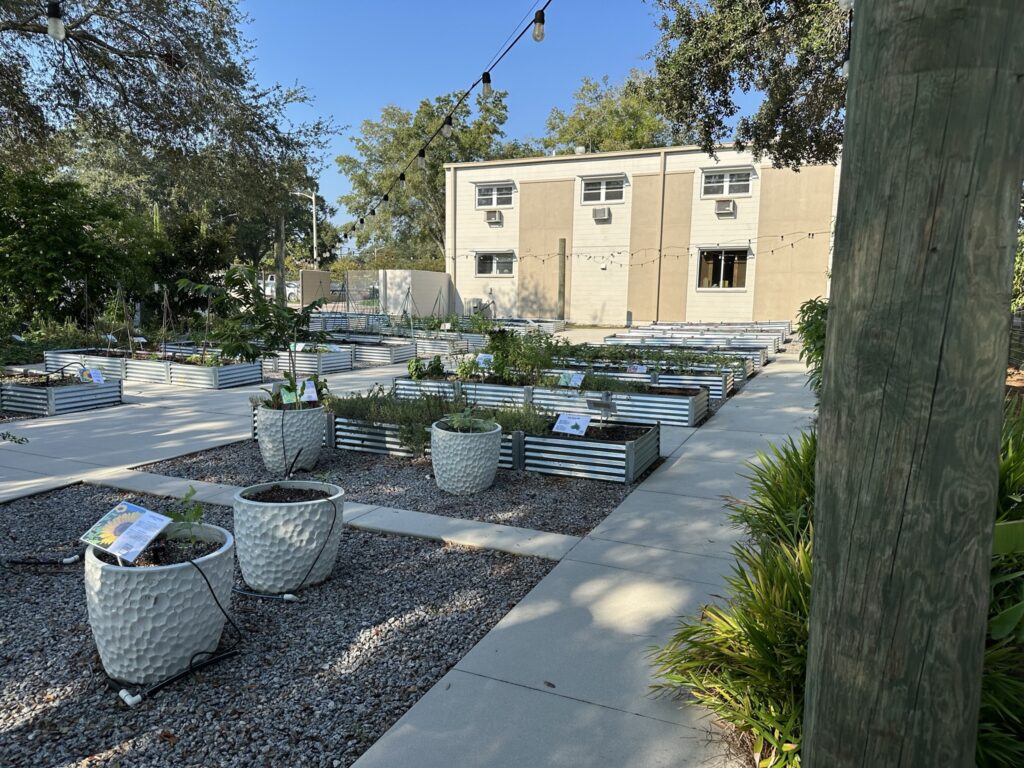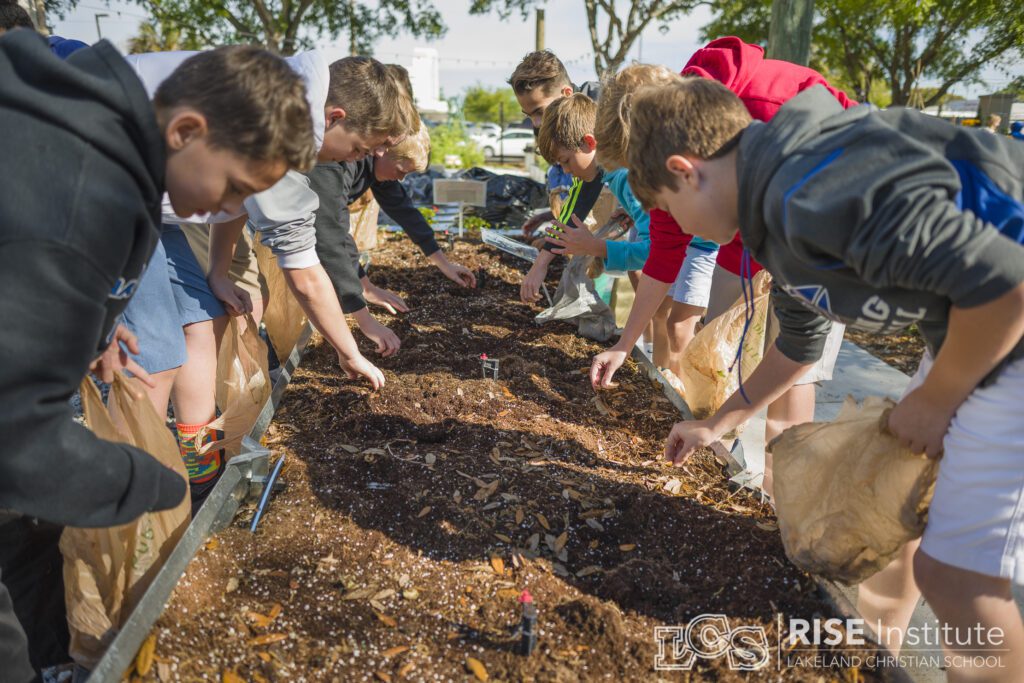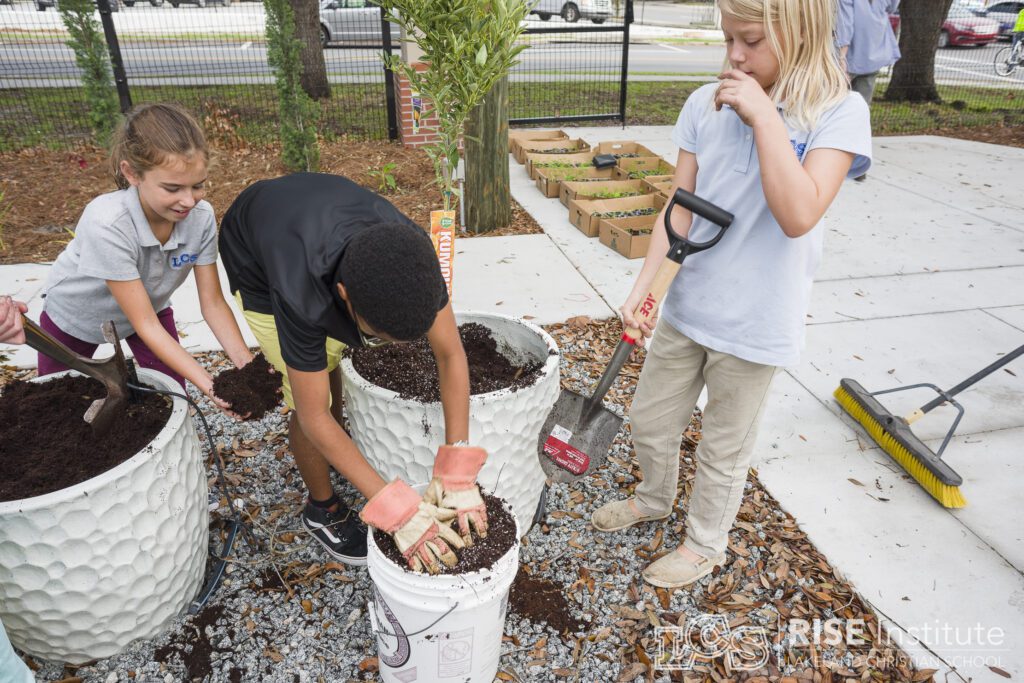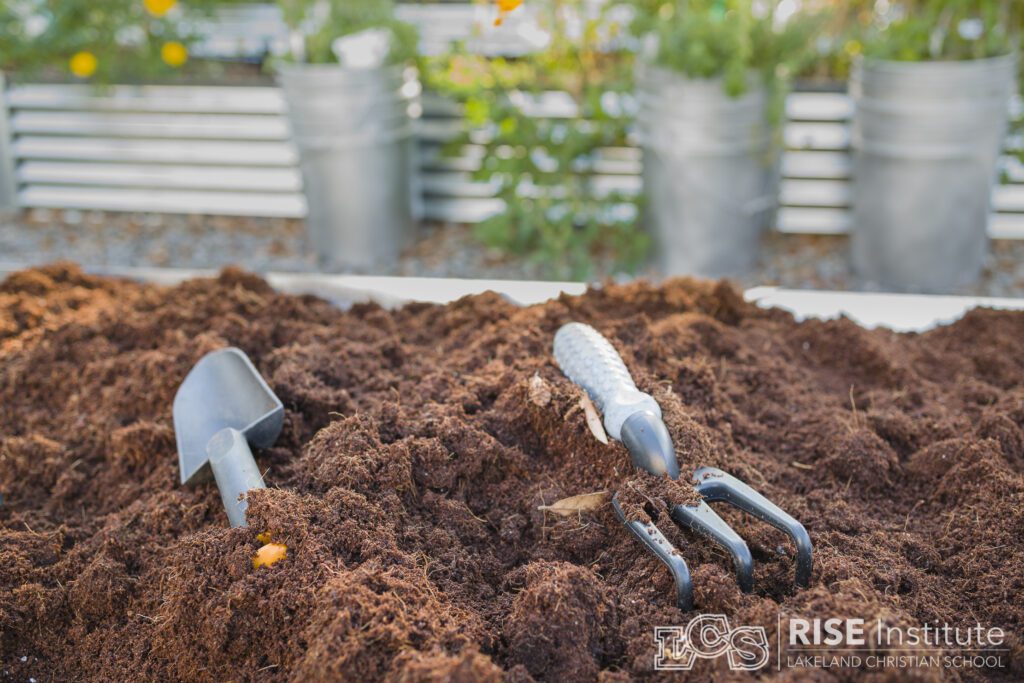Students Make RISE Institute’s Urban Farm Sustainable
by TERESA SCHIFFER
photos provided by MATTHEW CROXTON
Jennifer Canady may be spending more of her time in Tallahassee lately as the State Representative for District 50, but her heart is still in her hometown of Lakeland where she established the Everette Taylor Urban Farm at Mass Market with help from the students of the Lakeland Christian School RISE Institute.
The newly elected legislator was raised in Lakeland and began a teaching career there after graduating from the University of South Florida. For the past 15 years, she has directed the RISE (Research, Innovation, STEM learning, and Entrepreneurship) Institute at Lakeland Christian School. As a teacher, Canady often used the growing of plants in her classrooms to demonstrate various scientific principles, so it was a natural evolution from that to establishing a school garden for students to learn and experiment in.
Canady’s family always had a large garden when she was growing up, so she already had some experience with creating a productive vegetable patch. She explains what inspired her and her students at Lakeland Christian School to sow the initial seeds that would eventually blossom into a fully functional urban farm that makes significant contributions to the local community.
“We had been very interested for a number of years in why kids make the food choices they make. My students observed in the cafeteria that a lot of young kids, especially, didn’t choose to eat vegetables and healthy foods, and we were very concerned about Polk County. We have high rates of obesity, high rates of diabetes, and part of our community is a USDA food desert.”
The USDA defines a “food desert” as an area where at least 100 households are located more than one-half mile from the nearest supermarket and have no vehicle access. Several Central Florida locations have been identified as food deserts, including Frostproof, Lake Placid, and Crystal Lake in Lakeland. This lack of access to healthy food options becomes a contributing factor in the high rates of chronic diseases related to diet in places designated as food deserts.
Canady’s students at Lakeland Christian School wanted to do something to make a positive change in the lives of Polk County residents affected by these types of disparities, so about 2014 the choice was made to establish a school garden to help educate children on various topics related to agriculture, dietary choices, and community involvement.
“We would grow tomatoes, and we would grow green beans, and we would grow all kinds of vegetables,” Canady describes, “and as the kids watched them grow they would be much more willing, we found, to try them. So we did cooking demonstrations, and tastings, and we developed an education program.”
At the same time, the Lakeland Community Redevelopment Agency was interested in transforming a small plot of land at Mass Market in Lakeland’s Midtown Design District into something that would further revitalize the previously blighted neighborhood. The idea of an urban farm appealed to members of the organization, and they learned that Canady and her students were having some success with their garden at Lakeland Christian School.
A representative from the Community Redevelopment Agency visited Canady and presented the opportunity to use the 1/3-acre lot on Plum Street to create a community garden.
“We took the expertise that we had from doing this project with kids over many years, and worked with an architect named Jon Kirk, and developed this urban farm with the goal to actually be sustainable because often projects like this fail because of the high amount of labor involved. It is actually really hard to have a consistent garden operation that’s run by a school,” says Canady.
The RISE Institute that Canady directed at Lakeland Christian School aims to cultivate skills in critical thinking and problem solving among students by encouraging them to view social and scientific problems in the context of systems rather than as discrete issues. This perspective enabled Canady and Kirk to design a highly productive urban farm that can be sustained with labor provided by students and community volunteers in a truly manageable fashion.
The Everette Taylor Urban Farm officially opened October 26, 2017. It is named in honor of a beloved auditor with the Florida Department of Citrus who passed away in 2015. Taylor was well-respected by his colleagues for his integrity, but remembered and memorialized in the garden’s name because of the inexhaustible depths of his concern and care for his community, a passion that drove him to connect local students with senior citizens through their participation in the establishment and maintenance of urban gardens.
When Canady was elected to the Florida House of Representatives last November, she knew it was time to hand the responsibilities of the Everette Taylor Urban Farm off to someone else. Brandi Fountain became that someone.
Fountain has been an ag teacher for 16 years, and last year she joined the staff at Lakeland Christian School to help establish an agriculture program there. She and the school’s FFA students are now using the Urban Farm as a resource for their projects while producing sufficient amounts of vegetables to provide ample donations to groups like the Dream Center of Lakeland, which will distribute the fresh produce to local residents in need.
“This year has been very rewarding and exciting to watch these students participate and enter things into the Polk County Youth Fair,” says Fountain. “The kids are really excited about the program and can’t wait to see what the future holds!”







